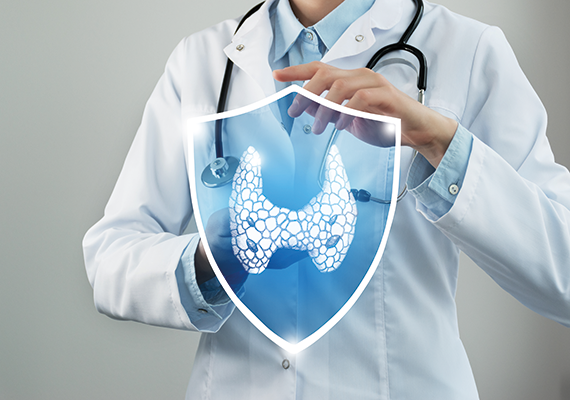Scandinavian researchers have published a study that demonstrates how a combination of selenium and Q10 can improve older people’s thyroid function and quality of life.
|
|
|
|
|
|
Movies typically lose their punch and originality when they are accompanied by sequels. Apparently, it’s different with science, and the best example is the original KiSel-10 study that was published in 2013 in International Journal of Cardiology. Ever since this groundbreaking study made headlines worldwide, it has been reexamined numerous times to see if there were any additional findings the researchers failed to spot the first time. So far, this exhaustive scrutiny of the original research has generated 26 follow-up studies, all of which make interesting reading.
|
|
|
|
|

Good news for thyroid function and quality of life
The most recent sub-study was published in May and focuses on older people’s thyroid hormones. It shows a positive and measurable effect on the metabolism when taking 200 micrograms of selenium yeast (SelenoPrecise) and 200 milligrams of coenzyme Q10 (Bio-Quinone Q10) every day for four years. Also, the scientists noted several signs of improved quality of life in those seniors who took the supplements.
The research is published in the scientific journal BMC Medicine and is based on analyses of blood samples from the 414 study participants. Half of the participants received the active combination of selenium and Q10, while the other half got matching placebo. When comparing the blood samples after four years, the researchers could clearly see the significant improvements obtained by those who took the two substances.
|
|
|
|
|
Older people have low selenium levels
Selenium is well known for its role in supporting a normal thyroid function. But why do older people specifically benefit from supplementing with this nutrient? The selenium levels that were measured in the blood of all study participants before the study started may give us a clue. The average selenium content was 67 micrograms per liter of blood, which corresponds with a daily selenium intake of around 35 micrograms. However, according to the revised Nordic Nutrient Recommendations from 2023, women need at least 75 micrograms of selenium daily, while men need 90 micrograms. The selenium-supplemented study participants therefore had a sufficiently high selenium intake than those in the placebo group, which explains why their thyroid function was better.
The thyroid gland controls our metabolism, which includes the cellular energy turnover that fuels the different body functions. Our quality of life very much depends on how well these body functions work, so it makes perfect sense that a well-functioning metabolism has a positive impact on quality of life.
|
|
|
|
|
Selenium and Q10 work as a team
What is more, selenium and Q10 support each other as a team. The body is able to synthesize coenzyme Q10 but this endogenous synthesis decreases with age, so older people have substantially less Q10 in their blood compared with younger individuals. It therefore makes good sense for seniors to take the two compounds in combination.
You can read more about SelenoPrecise (BioActive Selenium+Zinc) and Bio-Quinone Q10 (Bio-Active Q10) here:
|
|
|
|
|
|
|
|
Source:
“Supplementation with selenium and coenzyme Q10 in an elderly Swedish population low in selenium — positive effects on thyroid hormones, cardiovascular mortality, and quality of life”
Urban Alehagen, Jan Alexander, Jan O. Aaseth, Anders Larsson, and Trine B. Opstad.
BMC Medicine (2024) 22:191
https://doi.org/10.1186/s12916-024-03411-1
|
|
|
|
|
|